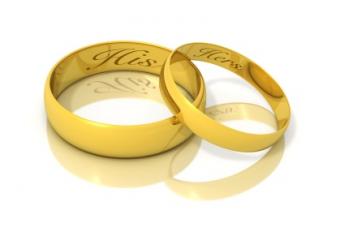
Exercises for learning possessive adjectives in French are extremely important for native speakers of English because of the many differences between expressing possession in French and in English.
The French Possessive System
Unlike English, French nouns have a gender; a table is feminine while a bed is masculine. In English, all nouns are marked the same (for example with 'the'), but in French, 'the' must be replaced by an article that marks the gender of the noun. In this manner, 'the table' and 'the bed' in English become: la table and le lit in French. Just like the definite articles must reflect the gender of the noun, so must possessive adjectives also reflect the gender of the noun.
For example, if you are talking about items in your house, you would say: ma table and mon lit because table is feminine and bed is masculine. The gender of the speaker is not important; one says ma table because the table is feminine, not because the owner of the table is feminine. Contrast this with English, where 'his ring' and 'her ring' refer to the owner of the ring being masculine or feminine, and not to the gender of the ring itself.
In French, possessive adjectives always agree with the noun they precede, both in gender and in number. The following forms exist:
| Person Form | Feminine | Masculine | Plural |
| my | ma | mon | mes |
| your (singular/informal) | ta | ton | tes |
| his/her | sa | son | ses |
| our | notre | notre | nos |
| your (plural/formal) | votre | votre | vos |
| their | leur | leur | leurs |
Two important things to remember are that the gender refers to the gender of the noun, and that if a noun begins with a vowel, the masculine form is used, even if the noun is feminine.
Exercises for Learning Possessive Adjectives in French
While you probably have access to plenty of French worksheets with exercises for learning possessive adjectives in French, it is good to know that there are also lots of online resources that are handy for learning this tricky part of French grammar. Whether you want some fun games for learning French or you prefer virtual flashcards over making your own flashcards, the internet has lots to offer.
Teachers, you can bring your students to the computer lab to work on these online activities, or you can assign your students to visit these websites and do the work online at home. As for students, if you're having trouble with this aspect of French grammar, don't wait for your teacher to make a suggestion about how to learn it once and for all. It's as simple as visiting these websites a few times over the course of a week; you'll have mastered the possessive adjectives in no time!
The following links are free and readily accessible on Quizlet, a site for studying just about anything, from foreign languages to state capitals:
- Flashcards: These flashcards allow you to either see both sides of the flashcard simultaneously or flip each card the way that you would with paper flashcards
- Translation Test: Once you think you've mastered the flashcards, test yourself with this link
- Activity Test: Another way to test your knowledge, one item at a time
- Matching Game: Match the terms-a fun game to see how quickly you can match them all
- Mastery Game: Once you have truly mastered the possessive adjectives, this is a fun game that is not only time sensitive, but allows you to keep score and to move on to more advanced levels as you get quicker and more accurate.
An important last step to making sure that you've mastered the French possessive adjectives is to make sure you can use them in context. Check your overall understanding by additional practice on Family Possessive Adjectives. Bonne chance!!







